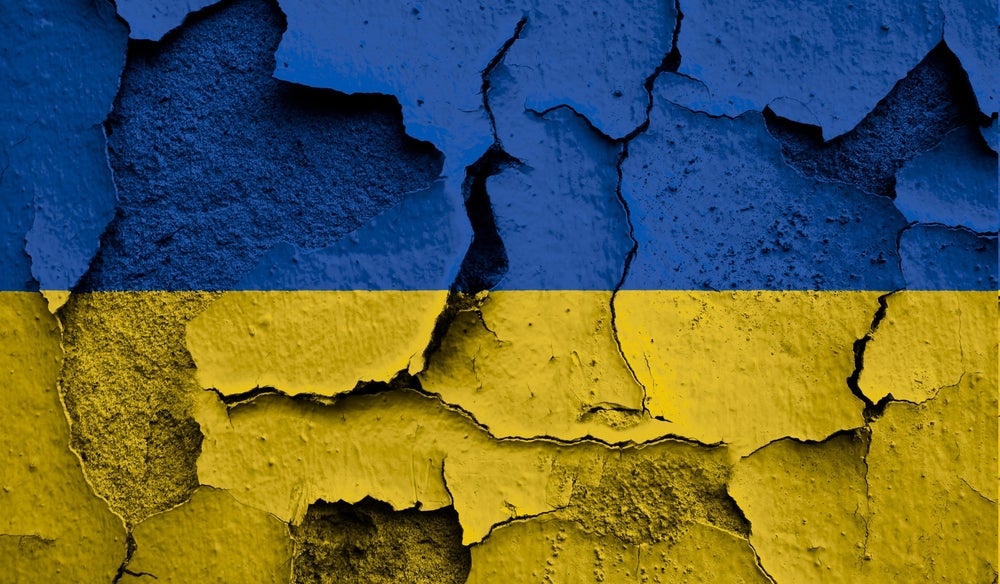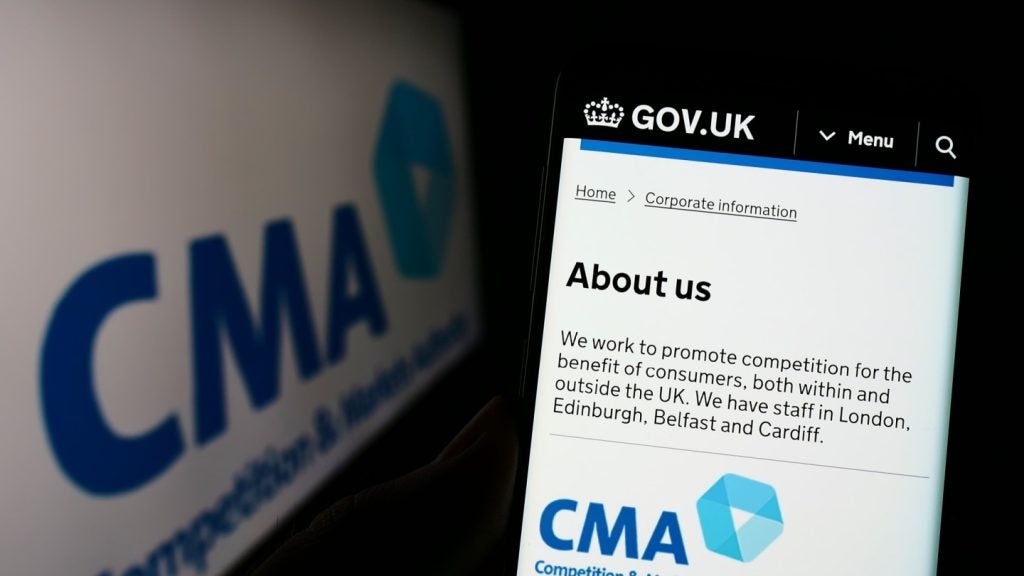
Tech workers in Ukraine remain undaunted despite one month of unrelenting shelling. The weeks following Vladimir Putin’s invasion on 24 February have seen engineers drafted to man Ukraine’s cyber defences. Others have taken up arms or been enlisted help with administrative tasks. Some are; however, busy ensuring that that the nation’s tech workers have something to come back to.
“We’ve started to think about the future of Ukraine [while we are] currently for our right to save our future,” Nataly Veremeeva, director of industry community TechUkraine, tells Verdict.
“We’re still fighting for our country but we’re also improving our economy because it one of the sectors that was not so heavily affected by the war,” she adds.
Calling from her flat in Kyiv, just miles away from Bucha where Russian troops allegedly committed horrible atrocities, Veremeeva does her best to put on a brave face, but the war has taken a toll.
“I feel tired because living in such levels of stress is complicated,” Veremeeva says “You see all these pictures of all the cities and people and that’s heartbreaking and exhausting.”
She talks about how her friends in the industry are busy helping the war effort by mapping evacuation routes, building apps for the army and fighting Kremlin propaganda. However, she also believes the country faces an unprecedented opportunity when Moscow finally pulls back its army.
How well do you really know your competitors?
Access the most comprehensive Company Profiles on the market, powered by GlobalData. Save hours of research. Gain competitive edge.

Thank you!
Your download email will arrive shortly
Not ready to buy yet? Download a free sample
We are confident about the unique quality of our Company Profiles. However, we want you to make the most beneficial decision for your business, so we offer a free sample that you can download by submitting the below form
By GlobalData“Some of the cities are destroyed, like really seriously destroyed,” Veremeeva says. “Of course, we can grieve about that, but we can also think about the possibility of building something new and creating something even better.”
She points at how Ukraine has almost become a testbed for new technology – like Elon Musk providing the nation with access the low-orbit satellite network Starlink – and that the war could accelerate the nation’s digitalisation efforts. The crisis has also proven, Veremeeva says, that tech workers in Ukraine are able to work remotely.
She hopes the nation’s tech workers who have managed to go into places like Poland and Czech Republic will not only return, but that they will bring the lessons they’ve learned. And, more importantly like many of her colleagues in Ukraine’s tech industry, Veremeeva keeps working.
Ukraine’s fragile tech sector
Ukraine is home to a growing tech ecosystem. In 2019, 4% of Ukraine’s GDP was attributed to the IT industry. International companies outsourcing their IT operations to Ukraine make up a huge chunk of the industry. Over 100 Fortune 500 companies outsource to Ukraine, according to Ukraine’s Office of Foreign Affairs. Its IT export volume increased 36% to $6.8bn in 2021, up from $5bn in 2020 and $4.2bn in 2019, according to a report from IT Ukraine Association, a trade group.
Companies like Amazon, Apple, Revolut, Wix, Uber, Lyft, JustAnswer, InfoPlus and Ikonia all had offices in the nation before the war.
Ukrainian entrepreneurs have also launched businesses in the country. In total, 126 tech startups have raised VC funding in Ukraine since the start of last year, according to Pitchbook. The country’s first decacorn Grammarly, which achieved a $13bn valuation on the back of a $200m investment round in April 2021.
“Ukraine holds a special place in my heart,” Grammarly CEO Brad Hoover said on LinkedIn at the start of the war. “Grammarly was founded in Ukraine, and I’ve had the privilege of getting to know its vibrant culture and kind people over the past decade – that includes many of our resilient, unstoppable team members who are yet again facing stress and uncertainty. I am saddened by the continued escalations in the country, and I am still hoping for de-escalation.”
Reface, the deepfake face-swapping app, is another Ukrainian startup. Reface has used its success to launch a campaign to dispel fake news and to inform its audience about the war, including its two million users in Russia. Other examples of Ukrainian technology companies include Gitlab, Jooble, CleanMyMac and InvisibleCRM.
Tech workers in Ukraine are not alone
Tech companies operating in democracies have not remained quiet about the war. The international tech community has rushed to come to their colleagues’ support. Several of the companies operating in the nation have offered relocation programmes for their workers or support if they choose to stay. Tech leaders, like JustAnswer, have also raised money to send supplies to the besieged country.
Others, like Microsoft, have offered their services to protect the Ukraine from cyberattacks. These efforts have also reportedly been aided by hacktivist group Anonymous.
The war in Ukraine has led democracies to slam unprecedented sanctions against Russia, as outlined in research firm GlobalData’s most recent Executive Briefing of the Ukraine conflict. Not only have they added more named to the laundry list of oligarchs sanctioned by the West, but have also cut Russia off from the SWIFT payment system.
Fearing that the billionaires with ties to Putin would attempt to skirt these sanctions by using cryptocurrencies, regulators have issued warning to cryptocurrency exchanges to up their anti-money laundering efforts. The exchanges have begrudgingly agreed to do what they can to ensure that sanctioned Russians don’t use their services. However, many have so far rejected calls to introduce blanket bans against all Russians.
Some fintech companies have no such compunction. Payment providers like Visa and Mastercard have pulled out of Russia, cutting the federation’s citizens off from their assets. Consumer products like NIKE, Heineken and adidas have also exited Russia.
Andy Kurtzig, CEO of JustAnswer, has implored businesses to not only sanction Russia, but to actively support Ukraine.
“For business leaders, the main message is: ‘buy Ukraine,’” he tells Verdict. “Don’t just boycott Russia, buy Ukraine. That means that if you’re thinking about doing business in Ukraine, do it. If you’re in Ukraine, keep going. We’re seeing lots of people unfortunately, pulling out and getting afraid and running away and that’s not helpful.”
If you and your business want to help the people of Ukraine during these terrible times, you can find information on how to do so here.
GlobalData is the parent company of Verdict and its sister publications.







